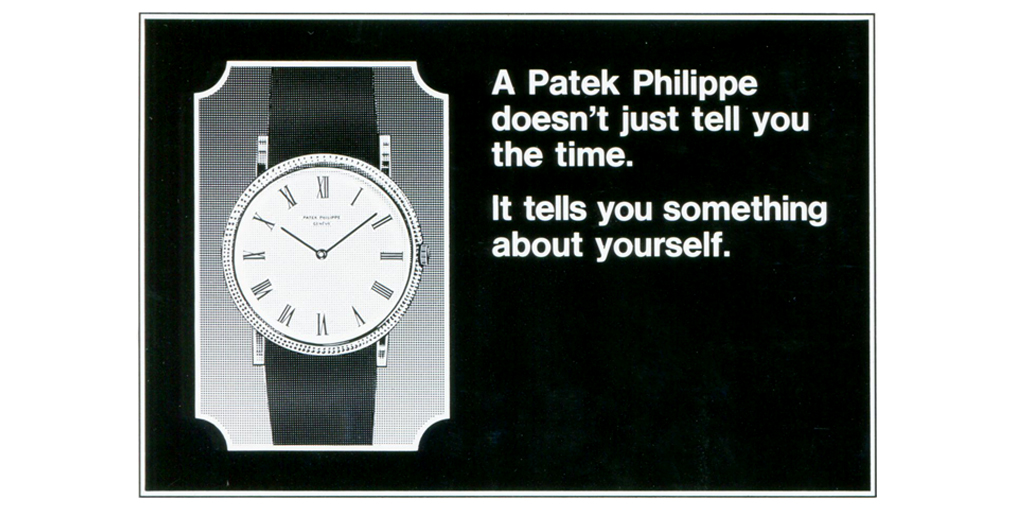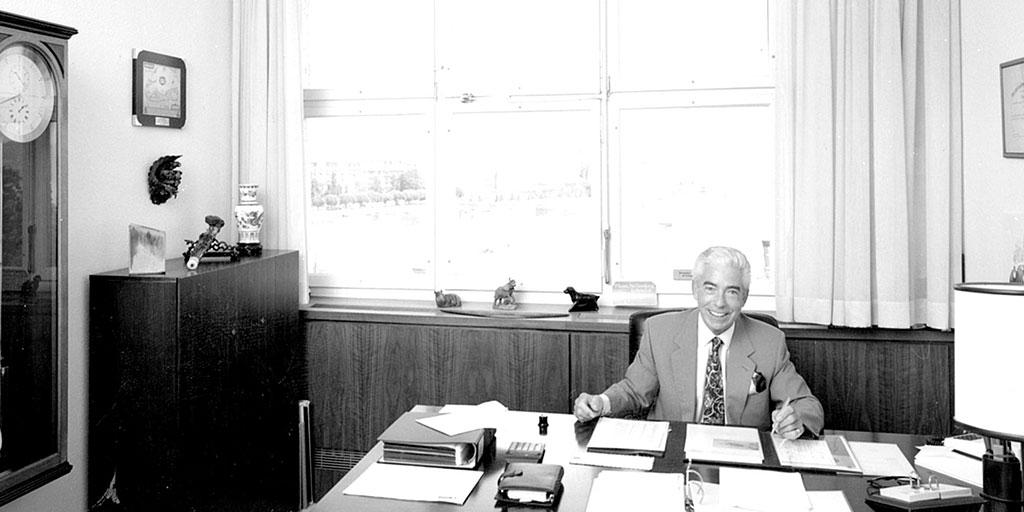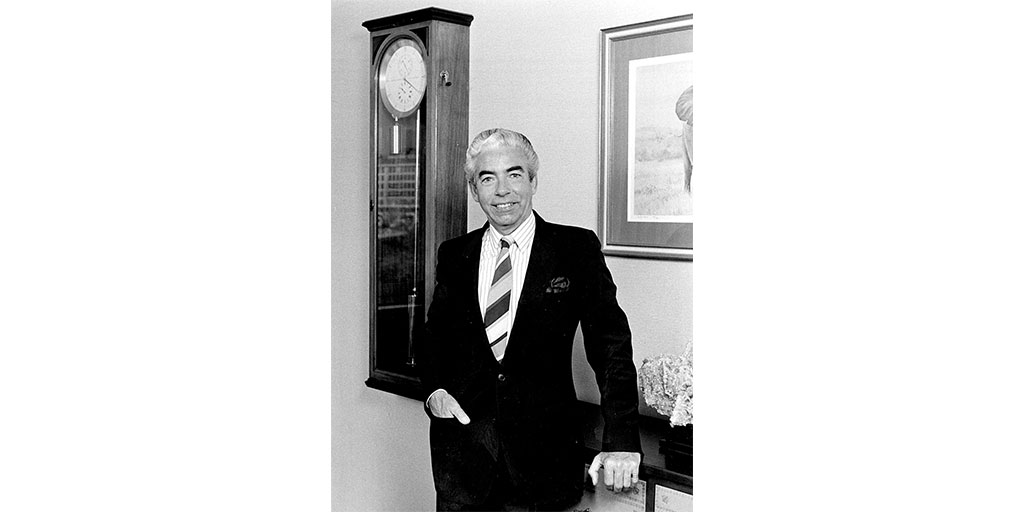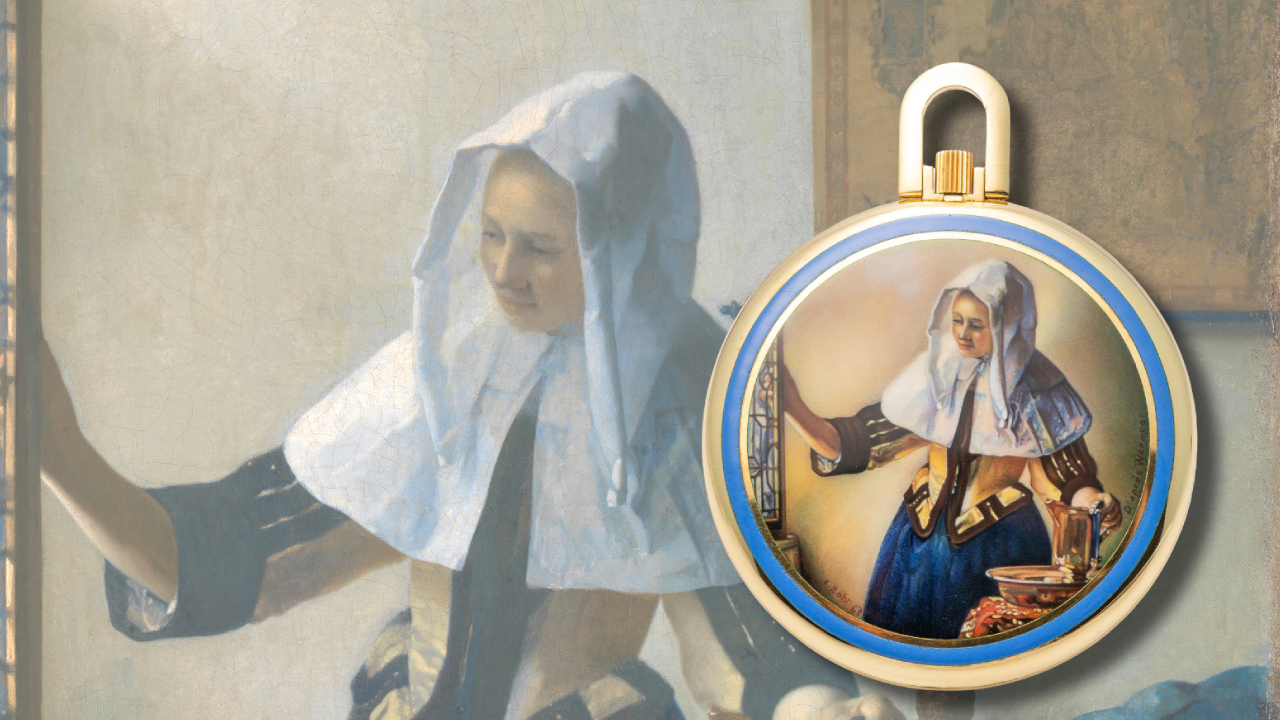From Patek’s first meeting with Mr. Tiffany in 1847, and consistently until the end of the 1980s, it is estimated that over half of all Patek Phillippe timepieces were sold in the US. The following chronology traces this extraordinary relationship.
1839 Antoine Norbert de Patek (1812-1877), Francois Czapek (1811- died after 1869), and a M. Moreau (first name and dates unknown) establish Patek, Czapek & Co. – Fabricantes a Geneve. The company is located at 29 Quai des Bergues, Geneva.
1843 Antoine Norbert de Patek is granted Swiss citizenship.
1844 National Exhibition of French Industrial Products, Paris. At this monumental fair, French watchmaker Jean Adrien Philippe receives a bronze medal for developing a new type of keyless stem winding and setting.
1845 Czapek parts with Antoine Norbert de Patek upon the completion of his contract and Patek recruits Jean Adrien Philippe (1815-1894) as Technical Director. Patek, Philippe, and a lawyer named Vincent Gostkowski (1807-1884) establish a newly named company, Patek & Co. – Fabricantes a Geneve. The company moves to 15 Quai des Bergues.
1847 Patek & Co. sells watches to Tiffany, Young and Ellis, New York.
1851 Patek, Philippe, and Gostkowski agree to rename the company Patek, Philippe & Co. – Fabricantes a Geneve.
1851 Crystal Palace Exhibition, London. Patek, Philippe & Co. wins a Gold Medal at the first, true World’s Fair. Both Queen Victoria and her husband Prince Albert purchase Patek, Philippe & Co. watches.
1853 Crystal Palace Exhibition, New York. At America’s first World’s Fair, the firm wins a Silver Medal.
1854 Patek Philippe moves to 22 Grand Quai, renting the building on the site of the modern day Patek Philippe boutique.
1854 Antoine Norbert de Patek embarks on an extensive sales trip to the United States. While in New York, he meets with Mr. Tiffany and establishes a formal partnership with Tiffany, Young, and Ellis.
1863 Adrien Philippe publishes his book called Les Montres Sans Clef (Keyless Watches) in Paris and Geneva.
1868 The firm makes the first Swiss bracelet watch for Countess Koscowicz of Hungary.
1876 Patek Philippe purchases the Place Cornavin factory from Tiffany & Co. Opened in 1872, Tiffany envisioned the new facility would use the American factory method of making watches combined with the expertise of Swiss workers.
1876 Centennial Exposition, Philadelphia. Patek Philippe participates in celebrating the 100th birthday of the United States. During the fair, Patek Philippe is represented by Tiffany & Co.
1876 Vincent Gostkowski leaves the firm and three Patek, Philippe & Co. employees become associates of the company: Albert Cingria, Gabriel Marie Rouge (d. 1897) and Edouard Kohn (1839-1908).
1877 Death of Antoine Norbert de Patek.
1878 Patek’s son, Leon Vincent Miecislas de Patek (b. 1857), joins Patek Philippe as a silent partner. Adrien Philippe’s nephew, Joseph Antoine Benassy-Philippe (d. 1906) takes the position of Financial and Commercial Director.
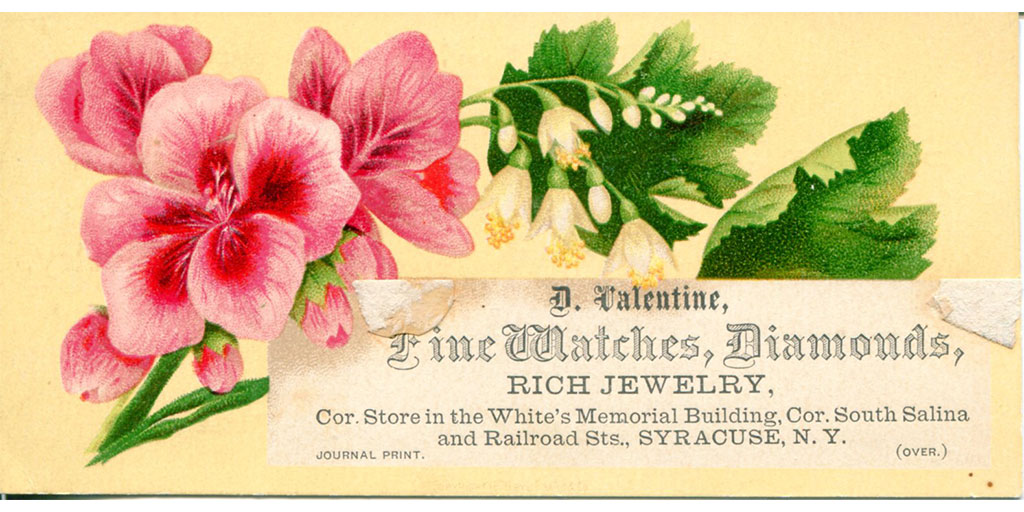
1881 Adrien Philippe invents a micrometer regulating system for the balance wheel. The system is later adapted for use in almost all wrist and pocket watches.
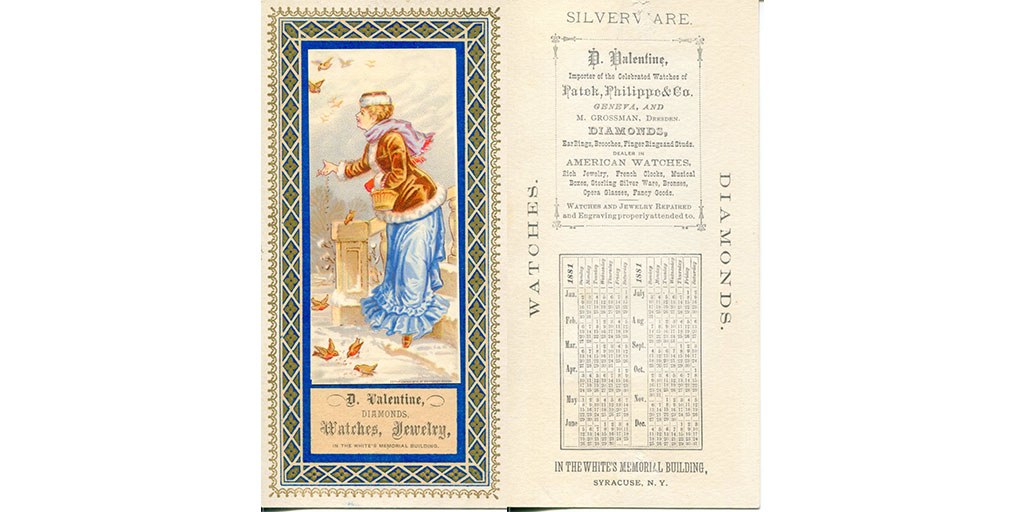
1886 The Geneva Seal is adopted to guarantee the highest quality of watches that meet its strict criteria. The seal qualifies the watches made to its standards as chronometer quality.
1891 Emile Joseph Philippe (1862-1907), Adrien Philippe’s youngest son, joins Patek Philippe.
1891 Patek Philippe purchases 41 Rue du Rhone, the adjacent building behind Patek Philippe’s location on the Grand Quai. The two buildings, once separated by a courtyard, are eventually connected.
1893 World’s Columbian Exposition, Chicago. Patek Philippe participates as a Member of the Jury.
1894 Death of Adrien Philippe.
1896 A former Tiffany & Co. employee named Alfred G. Stein becomes the American importer of Patek Philippe.
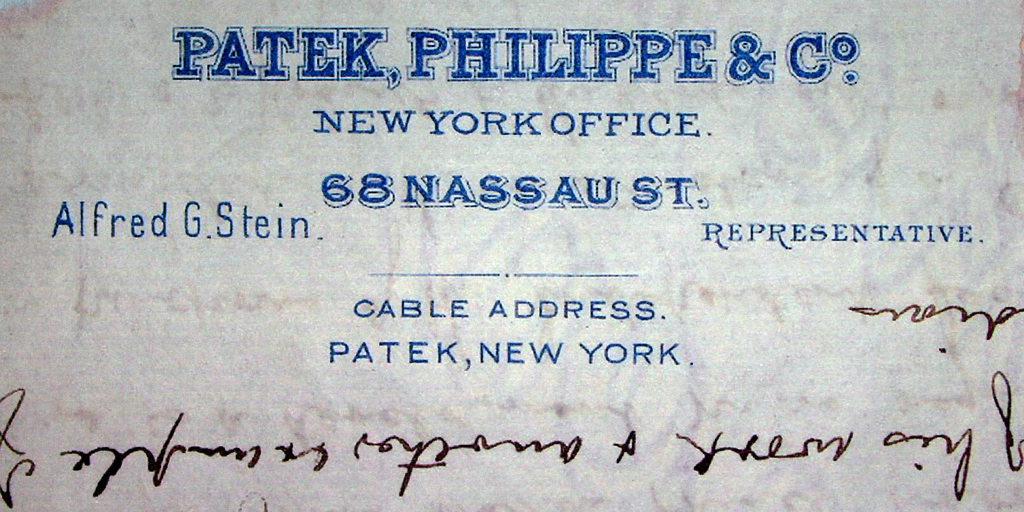
1900 Universal and International Exhibition, Paris. Alfred G. Stein represents Patek Philippe as a Member of the Jury.
1901 Patek Philippe is made a joint stock company and renamed Ancienne Manufacture d’Horologerie Patek, Philippe & Cie., Societe Anonyme.
1903 Retailer Maier & Berkele, Atlanta, Georgia places a Patek Philippe newspaper advertisement stating “It’s the kind of a watch worth passing from father to son.”
1904 St. Louis World’s Fair. Patek Philippe is a represented by Alfred G. Stein as a Member of the Jury. Stein also acts as Secretary of Horological Awards.
1906 Patek Philippe sends 12 minute-repeating movements to Tiffany & Co., New York. Some of these movements are first cased by Tiffany & Co. as ladies’ pendant watches and others are later used for wristwatches.
1909 Retailer Ludy & Taylor, Cedar Rapids, Iowa hosts an in-store Patek Philippe exhibition highlighting the Swiss firm’s watches as “Works of Art”.
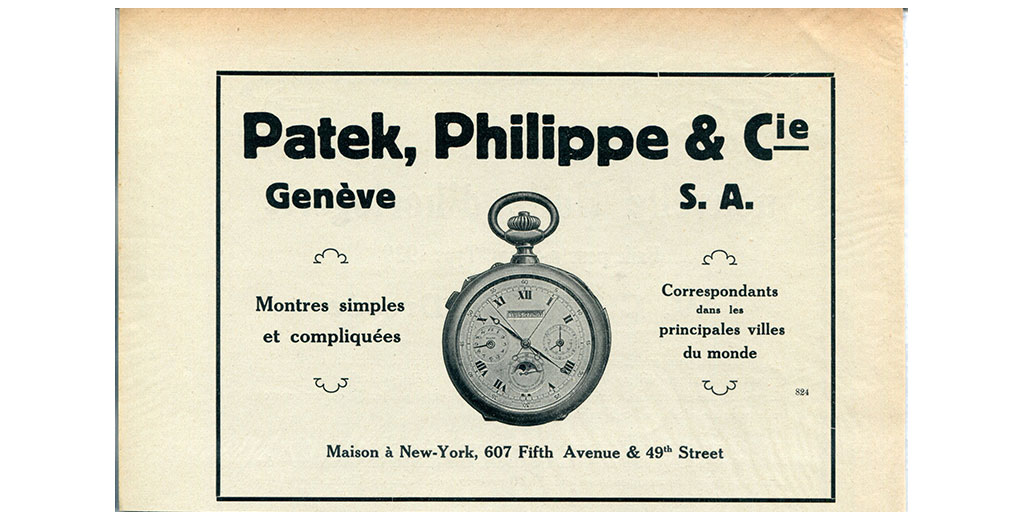
1915 At the San Francisco World’s Fair, Patek Philippe wins a Grand Prix.
1917 James Ward Packard is delivered an astronomical watch, movement number 174623.
1925 Patek Philippe begins regular production of minute-repeating wristwatch calibers.
1927 Patek Philippe sells its first chronograph and split-seconds chronograph wristwatches.
1927 Patek Philippe delivers two complicated watches to James Ward Packard, the first a minute-repeating watch with alarm playing a melody from Benjamin Godard’s opera Jocelyn’s Lullaby (movement number 198014), the second, a complicated watch including a celestial map depicting the nighttime sky above Packard’s home in Warren, Ohio (movement number 198023).
1932 The Stern brothers, Jean and Charles, become the majority shareholders of Patek Philippe after purchasing Alfred G. Stein’s stock in the company.
1932 Jean Pfister (1876-1968) is named Patek Philippe’s Technical Director.
1933 Patek Philippe delivers the most complicated watch ever made to Henry Graves, Jr. (1868-1953). Called the Supercomplication, the watch features 24 complications including a celestial map of the sky as seen from New York City.
1937 Henri Stern (1911-2002), Charles Stern’s son, is sent to New York to run the American distributorship of Patek Philippe.
1937 Henri Stern begins placing newspaper and magazine advertisements to promote the brand.
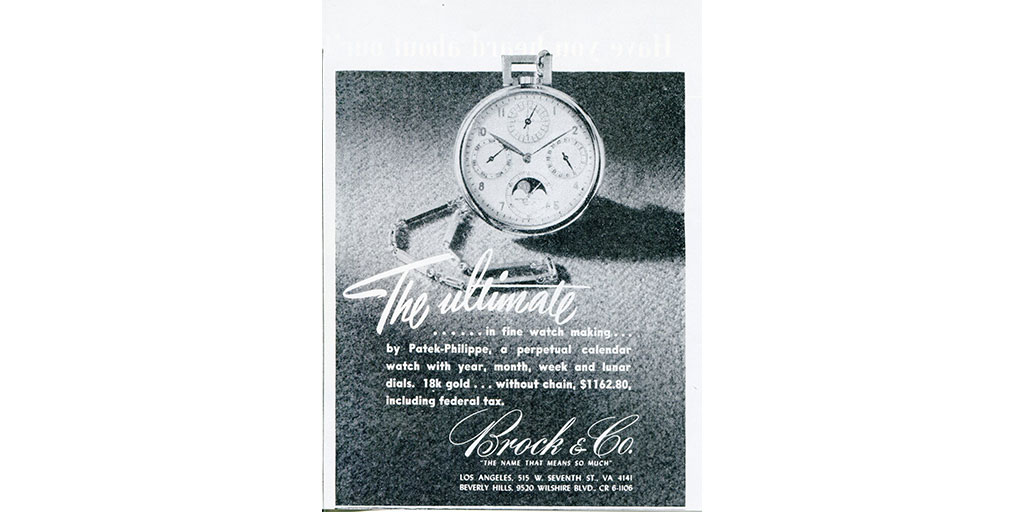
1939 Future Henri Stern Watch Agency (HSWA) president Werner Sonn (b. 1924) begins his career with Patek Philippe after being hired by Henri Stern.
1939 Patek Philippe celebrates its 100th anniversary.
1940 Facing the possibility of interrupted supply chains, American retailers stock up on an unprecedented amount of Swiss watches in the months leading up to WWII.
1941 In an effort to support the war effort and keep supply chains open with Geneva, Henri Stern takes on the American distribution of Universal Geneve. Henri Stern imports thousands of Universal Geneve chronograph wristwatches and distributes them to the United States armed services.
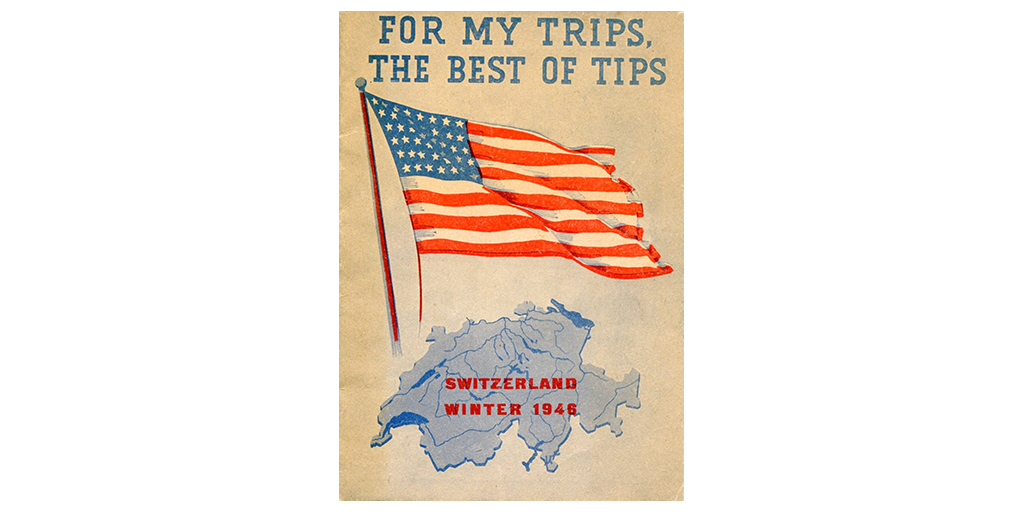
1946 The American Patek Philippe distributor is officially renamed The Henri Stern Watch Agency (HSWA).
1947 Englishman Edward Lionel Plimmer is named General Manager of HSWA.
1948 Patek Philippe starts its Electronics Division.
1948 Einar Buhl begins working for HSWA.
1948 HSWA markets a lower end line of watches called Lavina Villeret.
1949 Patek Philippe obtains its first patent for the Gyromax balance.
1949 The Henri Stern Watch Agency places newspaper advertisements stating, “Your great-grandson may wear this watch”.
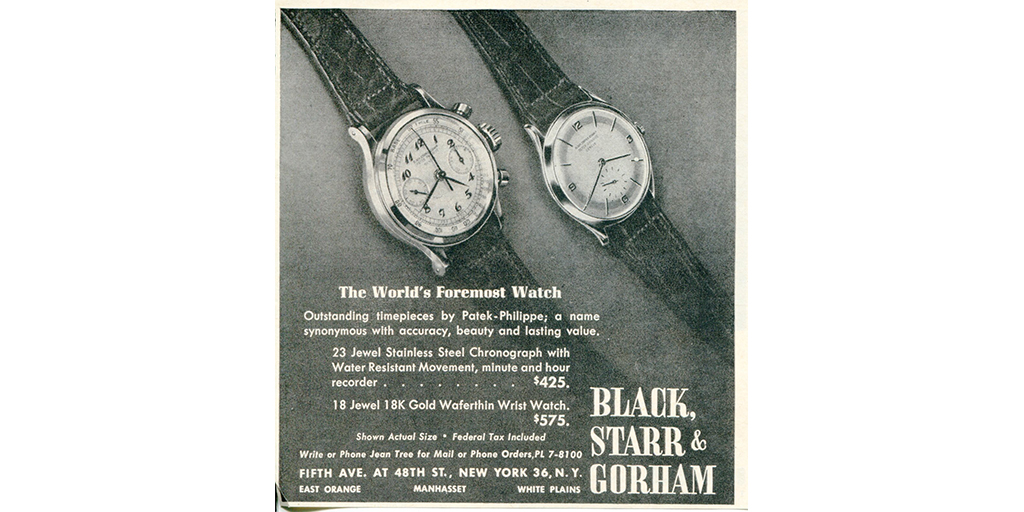
1953 Patek Philippe produces its first self-winding movement – the caliber 12’’’-600AT. It is first used in the ref. 2526 with an enamel dial.
1953 A collector from Ardmore, Oklahoma, J.B. Champion, receives the first ref. 2526 ever made, movement 760000, accompanied by a letter from Werner Sonn stating these facts.
1954 Patek Philippe produces the world’s first photoelectric desk clock.
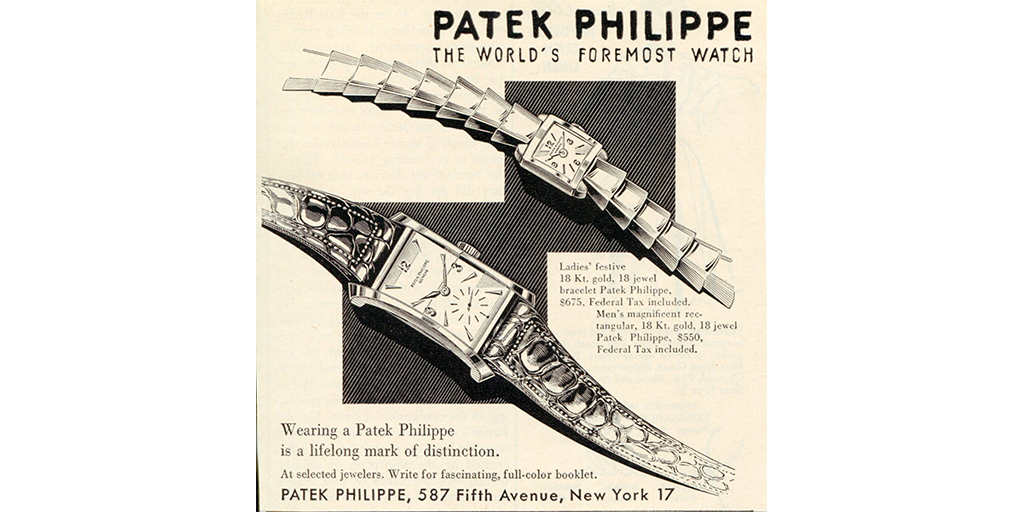
1956 Patek Philippe creates the first autonomous quartz desk clock and the first entirely electronic clock.
1957 Henri Stern returns to Geneva to replace Jean Pfister as President and General Director of Patek Philippe.
1957 Einar Buhl is named President of the Henri Stern Watch Agency.
1958 Patek Philippe wins an Oscar at the International Diamonds Award in New York. The firm goes on to win the prestigious award again in 1959 and 1960.
1959 Einar Buhl hires an advertising executive named Seth Tobias to assist HSWA in building brand awareness for Patek Philippe in the United States.
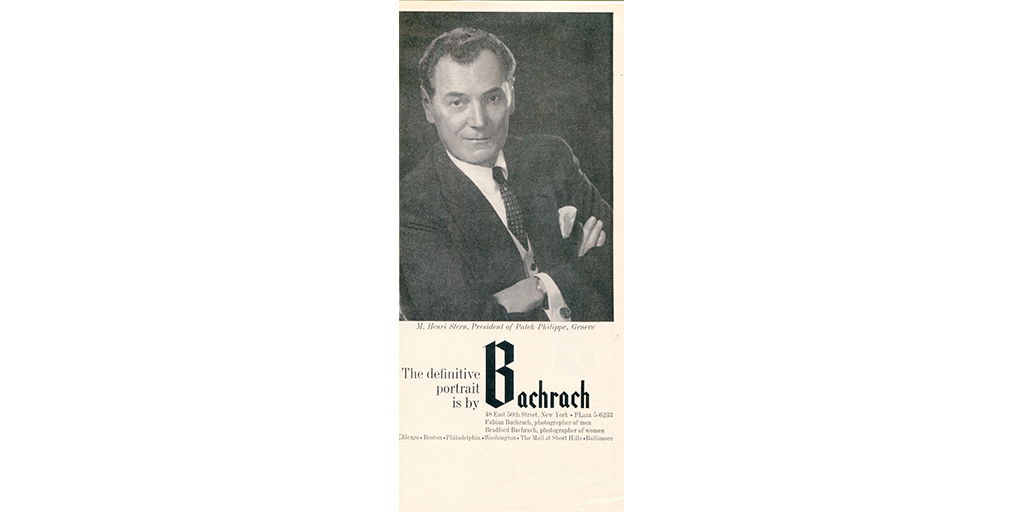
1961 Future HSWA president Hank Edelman joins Patek Philippe.
1963 President John F. Kennedy is presented a Patek Philippe autonomous quartz desk clock made especially for him to commemorate his famous visit to Berlin.
1962 Patek Philippe makes the first clock powered by a radioactive isotope.
1964 Jacqueline Kennedy loans her late husband’s Patek Philippe clock to HSWA for display at the New York World’s Fair in Corona, Queens.
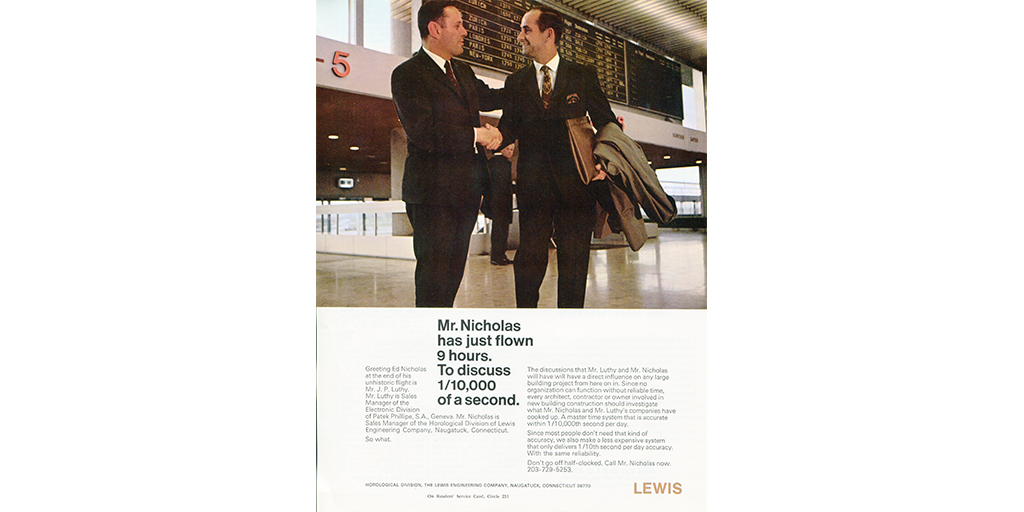
1964 Philippe Stern joins the family business and works for the Henri Stern Watch Agency.
1966 After working for HSWA in New York, Philippe Stern returns to Geneva to work for Patek Philippe.
1967 Patek Philippe installs the master timing system at the Vatican in Rome.
1968 During the Basel show Patek Philippe reveals the Naviquartz clock.
1968 Hank Edelman is interviewed by radio announcer Larry King to discuss the Patek Philippe Exhibition in Miami Beach, Florida.
1969 Patek Philippe partners with Dana Blackwell (1917-2007) of Lewis Engineering, Naugatuck, Connecticut to service its master timing systems.
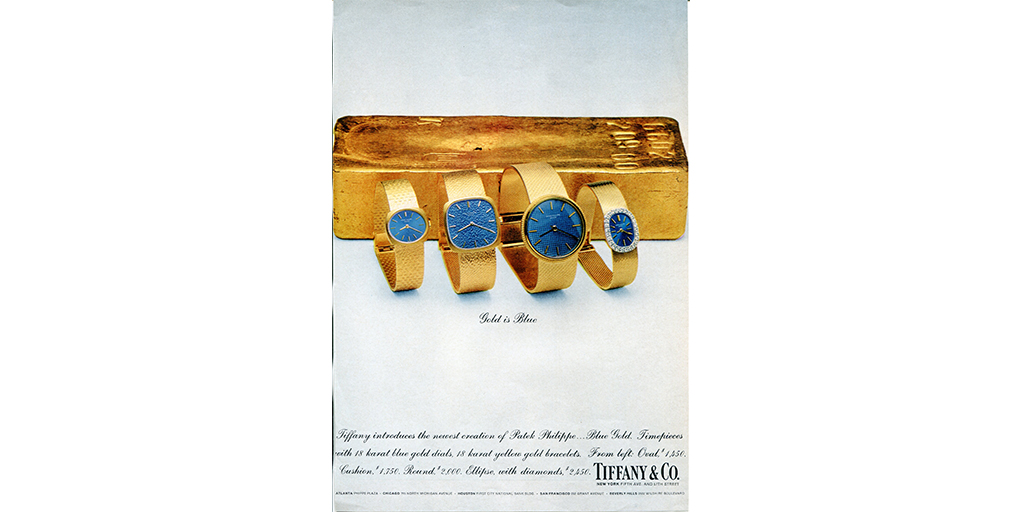
1969 Patek Philippe USA markets the new Ellipse wristwatch as a watch worthy of investment.
1970 Patek Philippe reveals its first quartz wristwatch containing the caliber Beta 21. The Beta 21 was the result of a Patek Philippe’s partnership with the Centre Electronique Horloger (CEH), a collection of Swiss watch companies working together with the goal of developing quartz technology.
1970 Einar Buhl retires from HSWA and Werner Sonn becomes President of Patek Philippe, USA.
1972 American horological collector Seth Atwood (1917-2010) takes delivery of a Patek Philippe pocket watch made especially for him featuring a secular perpetual calendar.
1975 Patek Philippe produces hand finished lighters in addition to a selection of cufflinks, necklaces and rings.
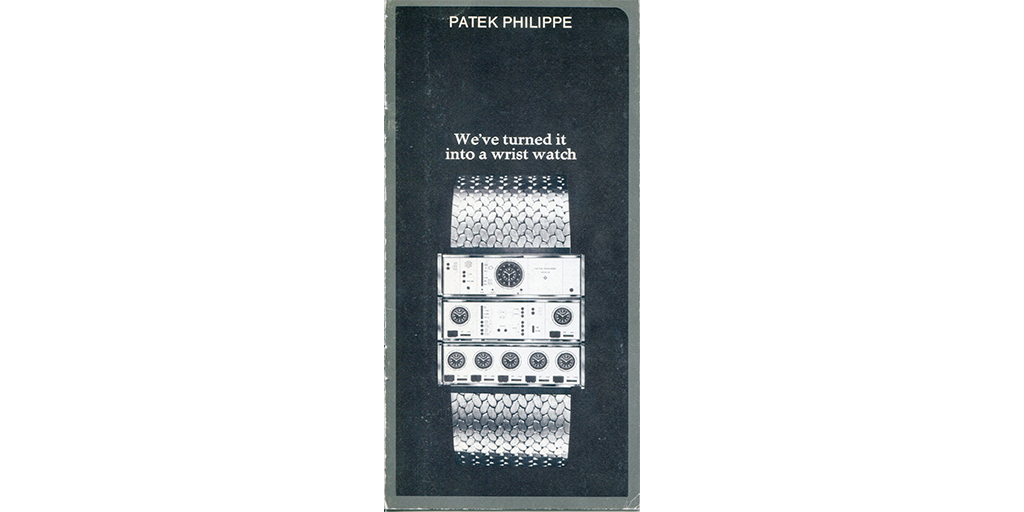
1976 Patek Philippe launches a unique sports watch called the Nautilus.
1976 Patek Philippe celebrates the United States Bicentennial with a commemorative advertising campaign highlighting famous American landmarks.
1977 Philippe Stern is named General Director of Patek Philippe.
1977 The Henri Stern Watch Agency partners with retailers for exhibitions (such as Shreve & Adlers).
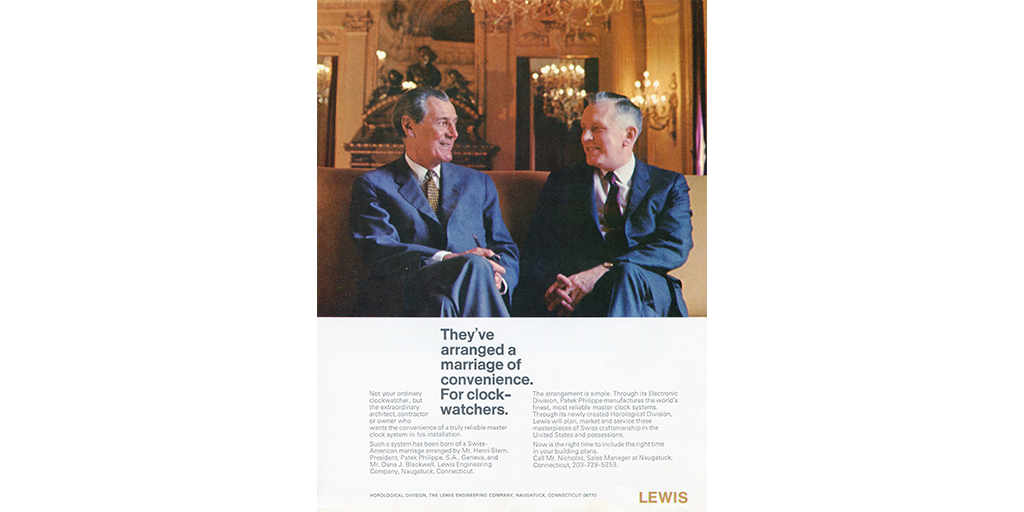
1986 Patek Philippe is awarded a patent for a mechanism that mechanically indicates the date of Easter. This invention was later used in the Caliber ’89.
1986 Patek Philippe launches the iconic Calatrava ref. 3919.
1989 Patek Philippe celebrates its 150th anniversary by presenting the most complicated watch ever made, the Caliber ‘89. With a total of 33 complications, the Caliber ’89 surpasses the Henry Graves Supercomplication as the most complicated watch in the world.
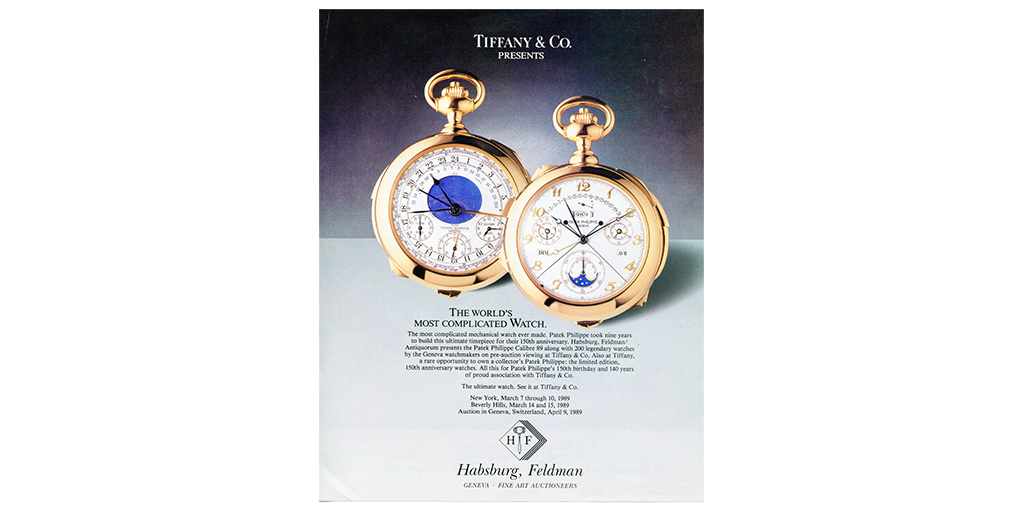
1991 Hank Edelman becomes President of the Henri Stern Watch Agency.
1991 As business continues to expand, the Henri Stern Watch Agency moves to larger headquarters and workshops at One Rockefeller Plaza, New York.
1992 Warren Buffet attends a Patek Philippe retail exhibition at Borsheim’s in Omaha, Nebraska and is photographed holding the white gold Calibre ’89. The headline, “The billion dollar man holds the six million dollar watch”, was published in hundreds of newspapers throughout the US.
1992 Just as his grandfather and his father before him, Thierry Stern joins the Henri Stern Watch Agency to learn about the important US market.
1993 Philippe Stern becomes President of Patek Philippe.
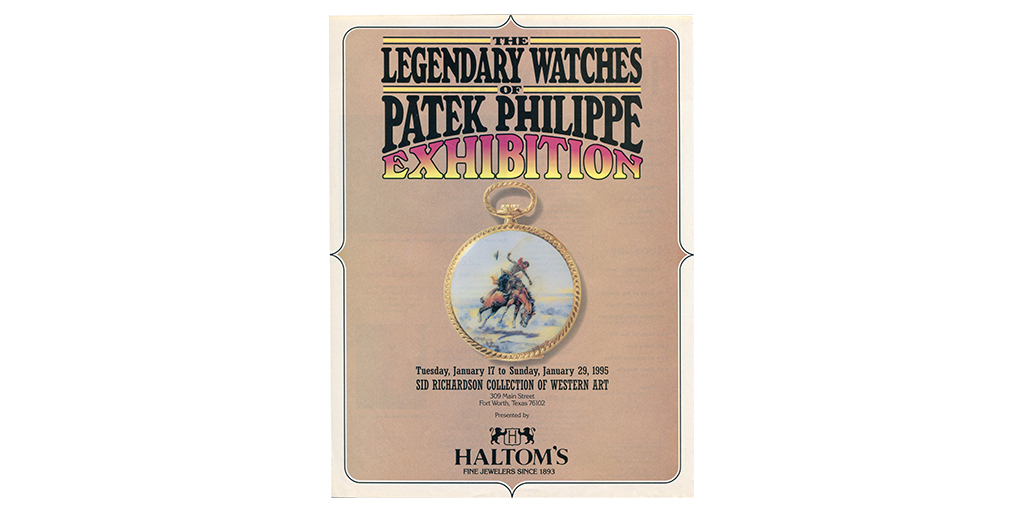
1995 The Legendary Watches of Patek Philippe is presented at the Sid Richardson Museum in Fort Worth in conjunction with Haltom’s jewelers. More than 15,000 people attended during the 12 day exhibition. Haltom’s commissioned five pocket watches: four enameled with minature reproductions of Charles Russell paintings, and one engraved with a Frederic Remmington painting. A dome clock was also made to commemorate this special exhibition.
1996 Launch of the Generations ad campaign with the iconic line, “You never actually own a Patek, you merely look after it for the next generation”.
1996 The award-winning Patek Philippe Magazine is launched in seven languages.
1997 Patek Philippe’s new workshops at Plan-les-Ouates, Geneva is commemorated with a series of limited edition timepieces.
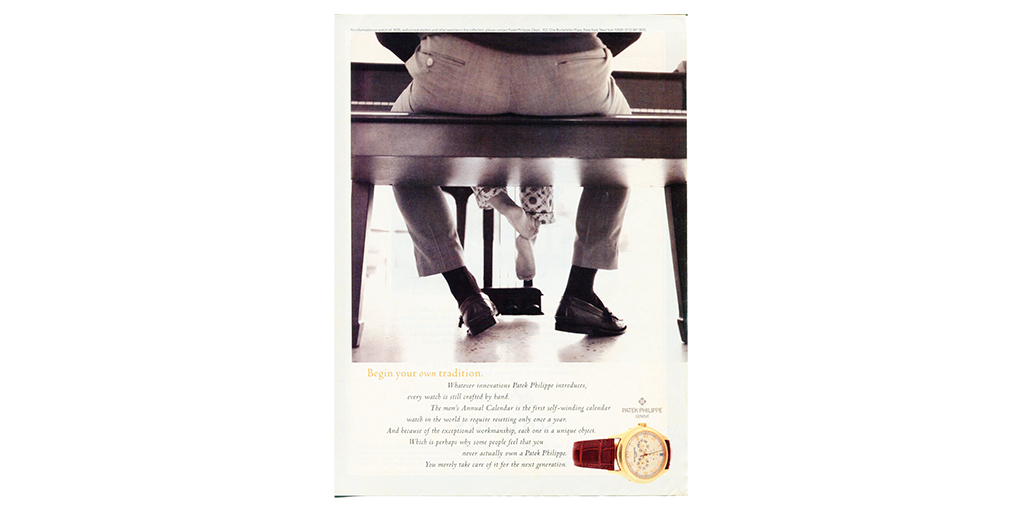
2000 To mark the millennium the Star Caliber 2000 is launched.
2001 Opening of the Patek Philippe Museum, Geneva.
2007 Larry Pettinelli becomes President of the Henri Stern Watch Agency. Hank Edelman becomes Chairman of the board, HSWA.
2008 The first Patek Philippe US boutique opens in Tiffany’s flagship store on Fifth Avenue, New York
2009 Thierry Stern becomes President of Patek Philippe.
2009 The Patek Philippe Seal is launched, a promise to the buyers of Patek Philippe watches that all the quality criteria developed by the manufacture are honored.
2009 Patek Philippe’s first in-house chronograph movement CH 29-535 PS is launched in the Ladies First Chronograph ref. 7071, the first watch to receive the Patek Philippe Seal.
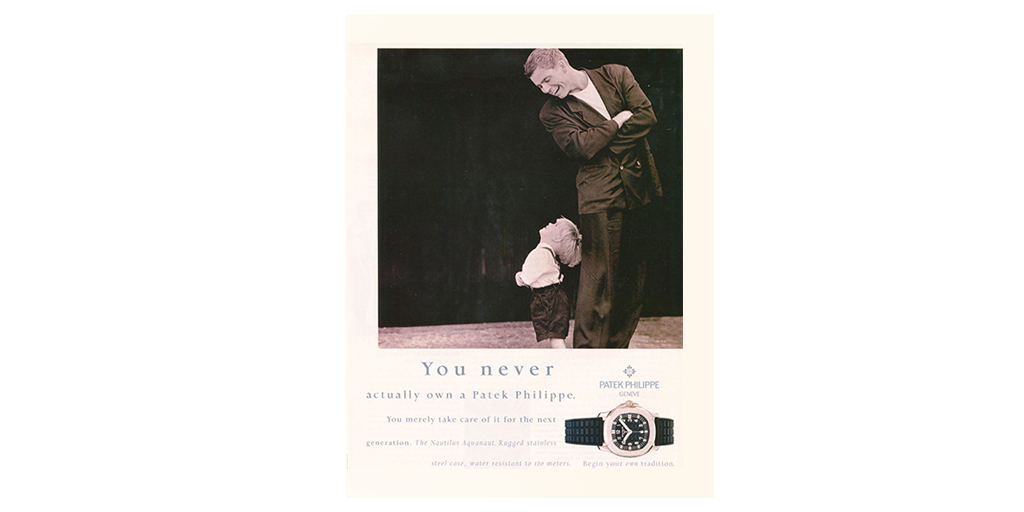
2013 Patek opens its new state-of-the-art 33,000 square feet US headquarters and workshop service center at 45 Rockefeller Plaza, New York.
2014 175th anniversary of Patek Philippe.
2017 The Art of Watches Grand Exhibition, New York is attended by more than 25,000 people (the maximum number allowed by the New York Fire Department) over the duration of the exhibition.
2019 Lisa Jones becomes President of the Henri Stern Watch Agency.

